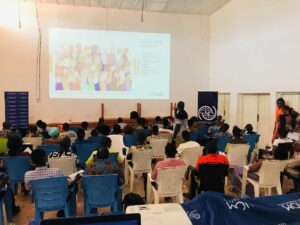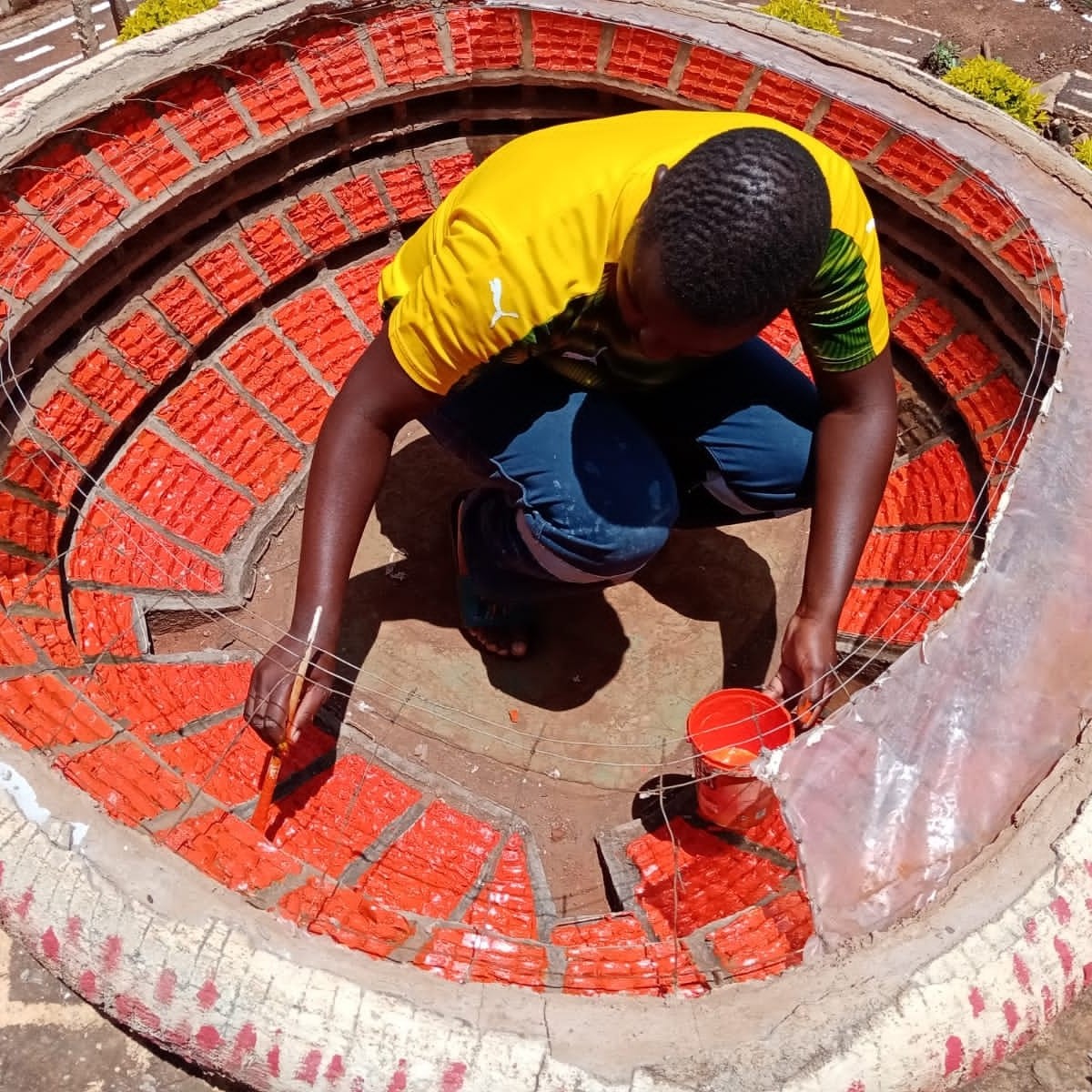IOM Concludes Training for Journalists and CSOS in Kambia District
BY Bilal Kamara (MAM Volunteer)
The International organization for Migration (IOM) has completed a two-day workshop for journalists and civil society officials on media engagements and migration reporting.
Journalists and CSOs from the Kambia District formed the 59 participants who attended the training held at the Resource Center in Kambia town on the 10th and 11th February 2022.
The training conducted by IOM was geared towards equipping journalists and CSOs with knowledge and information about the problems of irregular migration and migration-related activities. Participants that attended the training were able to learn some terminologies in handling and reporting migration stories. Journalists and CSOs were exposed to several International Humanitarian Laws and treaties.
Speaking at the training, Mohamed Barrie one of the trainers explained the work of IOM in Sierra Leone and reiterated with emphasis that IOM is not in the country to stop Migration or discourage migration but rather to make migration safe and orderly for the benefit of all.
“This training is important for us journalists living in the border town of Kambia’’ said Mariama Mariatu Kamara, a radio journalist. She furthered “I believe it is the responsibility of us journalists to provide people with the right information which will help them make informed decisions about travel offers”.
Abass Bangura a popular CSO in Kambia described the training as an opportunity for him to attend. He confessed that within the 2 days’ workshop, he has learned fresh ideas and knowledge about regular and irregular migration.
Kambia town is bordering Sierra Leone and Guinea. It is one of the main routes used by traffickers and young people; venturing into the perilous “temple run” journey. “Temple run” is Sierra Leonean slang for irregular migration. Every year, thousands of youths are embarking on this desperate journey to reach Europe. They travel by crossing the hostile Sahara Desert and the inhospitable Mediterranean Sea.
It is believed that Kambia has over 50 illegal crossing points leading into neighboring Guinea. Abdul Rahman Kays an experienced CSO activist who was one of the facilitators at the training disclosed that they deliberately chose Kambia town for this training because they believe it is a strategic crossing point for migrants and traffickers. Kays said that journalists and CSOs in this part of the country have an important role in reducing the risk of irregular migration by raising awareness against human trafficking and providing sufficient and timely information that will change the mindset about backway journeys.

Over the last 5 years, many Sierra Leoneans have been reported dead and stranded somewhere along their “temple run” journey while others especially women who have been trafficked to work in the Middle East are working under harsh and deplorable conditions such as sexual exploitation and abuse. At the end, when their mission of “irregular migration” fails and there is a clarion and voluntary call for a return to their homes, the international Organization for Migration – IOM responds to this call by supporting the voluntary return and reintegration of stranded migrants who are willing to return home and start a new life.
At the training, Mariama Bundu, a migrant returnee represented Women and Girl Child Against Irregular Migration, an organization that advocates for returnees. For her, if young people have access to the right information or know about risks involved in irregular migration, they will make better decisions before they travel. Mariama is also a migrant as a messenger volunteer (MaM) who is using her energy, voice, and experience to help other young people in Kambia town get the right information before taking up a journey that may eventually lead them to regrets. “I urge one to ask questions and confirm the information you receive before investing in any journey” she advised.
The training was delivered under the framework of the Migrants As a Messenger project with funding from the Netherlands Government.








